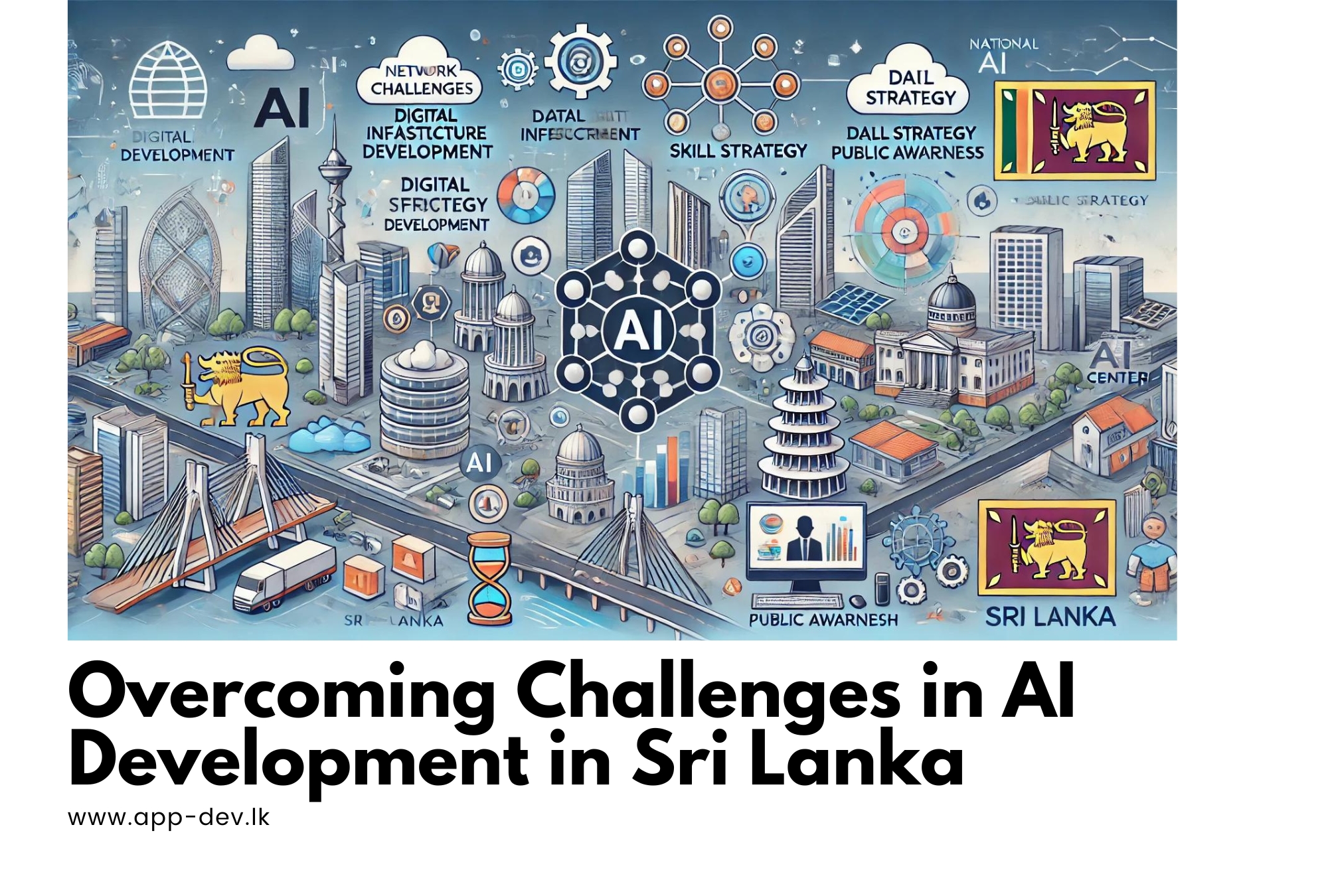Overcoming Challenges in AI Development in Sri Lanka
Overcoming Challenges in AI Development in Sri Lanka
Sri Lanka stands at the precipice of an AI-driven transformation, poised to leverage artificial intelligence (AI) for national progress, economic growth, and enhanced quality of life. However, the journey toward becoming an AI-enabled nation is fraught with challenges. This article outlines the key obstacles to AI development in Sri Lanka and the strategic framework proposed to overcome them, as highlighted in the National AI Strategy.

Key Challenges in AI Development
Incomplete Digital Transformation
One of the primary challenges is the incomplete digital transformation in Sri Lanka. While the World Bank-funded e-Sri Lanka program laid the groundwork for digital transformation, significant gaps remain. The existing digital infrastructure is not sufficiently developed to support robust AI applications. Issues such as inadequate network connectivity, limited cloud computing capabilities, and frequent system outages hinder AI development and deployment .
Scarcity of Advanced AI Skills
There is a notable scarcity of advanced AI engineering skills in Sri Lanka. This skill gap is exacerbated by the brain drain, with many skilled professionals seeking better opportunities abroad. Additionally, there is a deficiency in executive and strategic expertise necessary to create strong AI business cases. The lack of trained professionals hampers the ability to develop and implement AI solutions effectively .
Data Accessibility and Quality
The availability, accessibility, and quality of data are critical for AI initiatives. Sri Lanka faces challenges with data representativeness and the disuse of the current open data portal. A robust data governance framework and data strategy are essential to overcome these barriers. The National AI Strategy emphasizes the need for a comprehensive data strategy to ensure the availability of high-quality, digitized data .
Strategic Framework to Address Challenges
Enhancing Technical Capabilities
To bridge the skill gap, Sri Lanka must invest in education and training programs focused on AI and data science. Collaborating with educational institutions to introduce AI-specific degree programs and professional development courses is crucial. Additionally, leveraging online educational platforms like MOOCs can help expand the talent pool rapidly .
Developing a Robust Data Strategy
A comprehensive data strategy that includes data governance, management, sharing, and usage is vital. The government’s commitment to revitalizing the open data portal and improving the National Spatial Data Infrastructure will significantly enhance data availability and quality. Aligning existing and forthcoming policies will ensure a cohesive approach to data management .
Building Technological Infrastructure
Investing in reliable network connectivity, cloud computing infrastructure, and data storage solutions is essential. The government should prioritize expanding 5G connectivity, improving last-mile access, and deploying fiber optic networks. Encouraging public-private partnerships can facilitate the development of robust infrastructure to support AI applications .
Fostering Research and Development
A thriving research and development (R&D) environment is necessary for driving AI innovation. The 2024 National Budget’s allocation for R&D grants, with a portion earmarked for AI, will support this endeavor. Encouraging collaborations between academia, government, and the private sector will stimulate practical applications and commercialization of research findings .
Role of the National AI Center
The establishment of a National AI Center, aligned with the Digital Strategy 2030, is a critical step in orchestrating AI initiatives nationwide. This center will serve as a hub for AI research, development, and deployment, fostering collaboration among stakeholders and ensuring the implementation of the National AI Strategy .
Public Awareness and Engagement
Increasing public awareness and understanding of AI is crucial for fostering a supportive environment for AI adoption. Public awareness campaigns, educational programs, and accessible online courses can demystify AI and highlight its benefits and potential risks. Collaborating with civil society organizations can amplify these efforts and ensure diverse perspectives are included .
Conclusion
Overcoming the challenges in AI development in Sri Lanka requires a comprehensive and strategic approach. By enhancing technical capabilities, developing a robust data strategy, building technological infrastructure, fostering research and development, and increasing public awareness, Sri Lanka can pave the way for successful AI integration. The National AI Strategy provides a roadmap for this journey, positioning Sri Lanka as a leader in responsible AI development and use.

